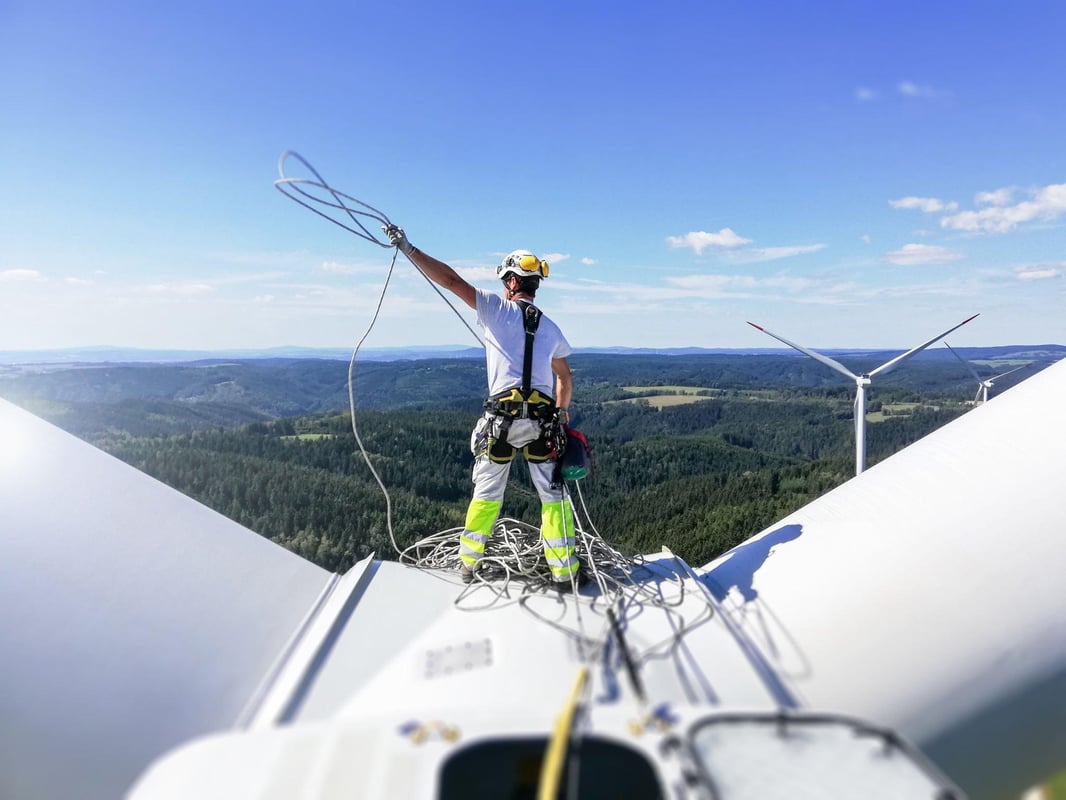Is Wind Turbine Technician a Good Job? Pros and Cons (2025)

Exploring a career as a wind turbine technician is a significant decision. This blog post will guide you through the roles and responsibilities, benefits and drawbacks, necessary skills and qualifications, career outlook, and key considerations for this profession.
Key Points
- Wind turbine technicians install, maintain, and repair wind turbines.
- Essential qualifications include a high school diploma, a certificate or degree in wind energy technology, and a driver's license.
- Training durations range from several months to two years, depending on the program type.
- Wind turbine technicians earned a median annual wage of $62,580 as of May 2024, according to the U.S. Bureau of Labor Statistics.
Important considerations include:
-
Physical and Mental Demands: Assess your ability to meet the physical and psychological requirements of the job.
-
Work-Life Balance: Be prepared for potential schedule irregularities and travel.
-
Passion for Renewable Energy: A genuine interest in sustainable energy can enhance job satisfaction.
-
Educational Commitment: Consider the necessary educational pathways and potential training programs available through platforms like Dreambound.
Frequently Asked Questions
Is it hard to be a wind turbine technician?
Yes, being a wind turbine technician can be challenging. The job requires physical labor, climbing tall structures, and working with complex machinery. Being physically fit and skillful in problem-solving is a huge part of the job!
Is being a wind turbine technician stressful?
Like any job, being a wind turbine technician can be stressful at times. Stressors of a wind turbine technician can be due to the physical demands of the job, working at heights, pressure, and more.
Is there a demand for wind turbine technicians?
Yes, there is a growing demand for wind turbine technicians! The U.S. Bureau of Labor Statistics predicts that employment for wind turbine technicians will grow 60% from 2023 to 2033, much faster than the average for all occupations. This is due to the increasing reliance on wind power as a source of clean energy.
What are the risks of being a wind turbine technician?
The main risks of being a wind turbine technician include physical injury, equipment malfunctions, exposure to harsh weather conditions, and hearing damage from constant exposure to loud machinery.
Final Thoughts
Choosing a career as a wind turbine technician offers substantial rewards, including competitive pay and a role in promoting sustainable energy. However, it's crucial to consider the physical demands, potential safety risks, and the need for irregular hours. For those ready to pursue this path, Dreambound offers resources to find the right training programs to start your career.
Dreambound has written many guides to help you understand what it takes to get this certification. If you're curious about the process or requirements in different states, check out our other guides below:
- How to Become a Wind Turbine Technician in Georgia
- How to Become a Wind Turbine Technician in Nevada
- How to Become a Wind Turbine Technician in New York
Contemplating a transition in your career or exploring various professional paths? Dreambound has written comprehensive guides on nearly every type of program to aid you in your decision.




